This Orange Glazed Roast Turkey is juicy, flavorful, and perfect for Thanksgiving. Brining in a simple orange juice brine and roasting breast side down for part of the time, ensures a bird that’s evenly cooked and juicy. I have all of the pro tips to help you master this impressive recipe.
Table of Contents
- Ingredients for Rosemary & Orange Glazed Turkey
- How to Make Roasted Turkey with Orange Glaze
- Step 1: Brining Your Turkey
- Step 2: Start the Turkey Breast Side Down
- Step 3: Make the Orange Glaze
- Step 4: Check the Temperature of Your Turkey
- Step 5: Rest the Turkey
- What Are the Benefits of Brining a Turkey?
- Storage and Freezing
- Test Kitchen Tips
- Using Leftover Turkey
- FAQs
- Roasted Turkey with Orange Glaze Recipe
The perfect Thanksgiving turkey. Does just reading that make you quiver in your chair? Yea, I get it. The pressure is high on Thanksgiving to deliver a bird that’s not only worthy of being the centerpiece, but also tastes delicious and isn’t dry as a bone.
This recipe will rid your turkey woes and make you the Thanksgiving MVP. How? Well it all starts with how you prep the bird, I’m a true believe in a brine. Then it’s all in how you cook it and when to pull it from the oven.
Below I reveal my pro tips for each step in this recipe to ensure you achieve the perfect Thanksgiving roast turkey. Are you ready?
A turkey recipe never requires a lot of ingredients, this orange turkey has just about ten ingredients to make a delicious glaze with rosemary and citrus notes.
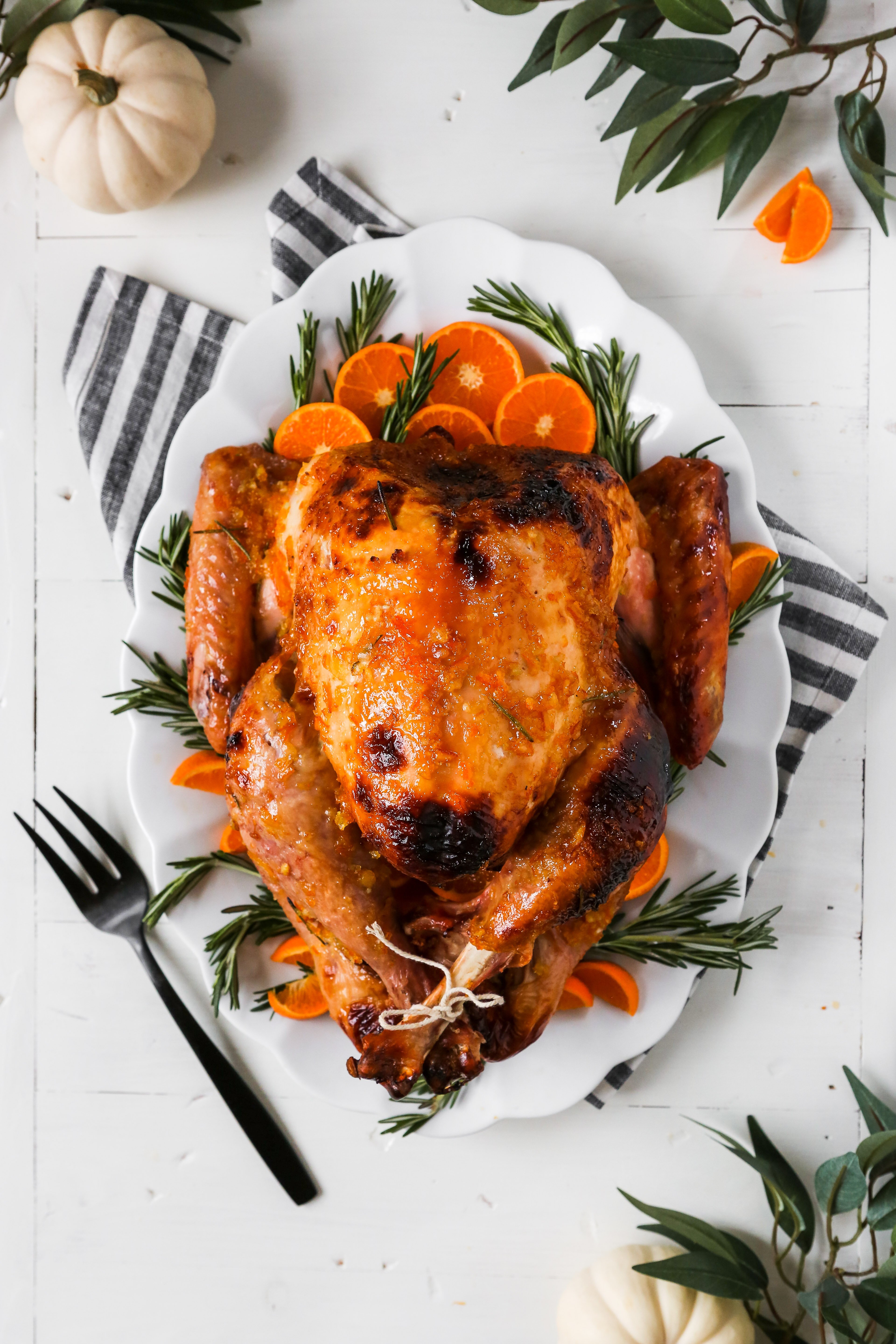
Ingredients for Rosemary & Orange Glazed Turkey
For the Brine:
- Kosher salt: I like to use Morton kosher salt when developing recipes. If you’re using Diamond Crystal, this article on Kosher Salt will help you make the necessary conversions.
- Frozen orange juice concentrate: one of the easiest and most impactful ways to impart a ton of flavor into a turkey is to use concentrated juice! Use two frozen cans of 100% orange juice.
- Black peppercorns: you’ll need whole black peppercorns—avoid using ground pepper.
- Dried bay leaves: just two dried bay leaves for some flavor insurance. If you don’t have them, skip ’em.
- Turkey: I recommend using a fresh 12 pound turkey. You can use a frozen one, but make sure it is not injected with any brine (aka a Butterball). Thaw the frozen turkey in the fridge, allowing 1 day for every 4 pounds.
- Low sodium chicken broth: this recipe is already full of salt so I recommend just using low-sodium chicken broth. You can also use Better Than Bouillon to make chicken broth.
For the Orange Glaze:
- Orange marmalade: In keeping with the flavor of the brine, the base of the glaze is marmalade. Just use whatever brand you like best—you’ll need ¾ cup (so buy just one standard-sized jar). If you aren’t a fan of marmalade, you can use apricot jam.
- Orange juice: fresh orange juice is best for making the glaze, though you can also use orange juice made from concentrate.
- Dijon mustard: one tablespoon of Dijon mustard adds a punchy tangy that balances out the sweetness nicely. I like Grey Poupon but Maille is also great.
- Garlic: fresh is best! You’ll need 1 tablespoon of minced fresh garlic, so about 4 medium-sized cloves.
- Rosemary: a couple sprigs of fresh rosemary infuse the glaze with winter flavor. Fresh thyme would also work.
How to Make Roasted Turkey with Orange Glaze
Step 1: Brining Your Turkey
Ok, so first we have to understand what a brine is. Simply put, a brine is a solution of salt and water that is used for pickling, preserving or tenderizing food. Other flavorings such as herbs, spices and sugar are also often added to the solution.
For this recipe we’re keeping our brine easy, yet flavorful. Our solution is made of water, salt, orange juice concentrate, black peppercorns and dried bay leaves. Fun fact, orange juice is often used in meat marinades for its acidic quality—aka tenderization quality.
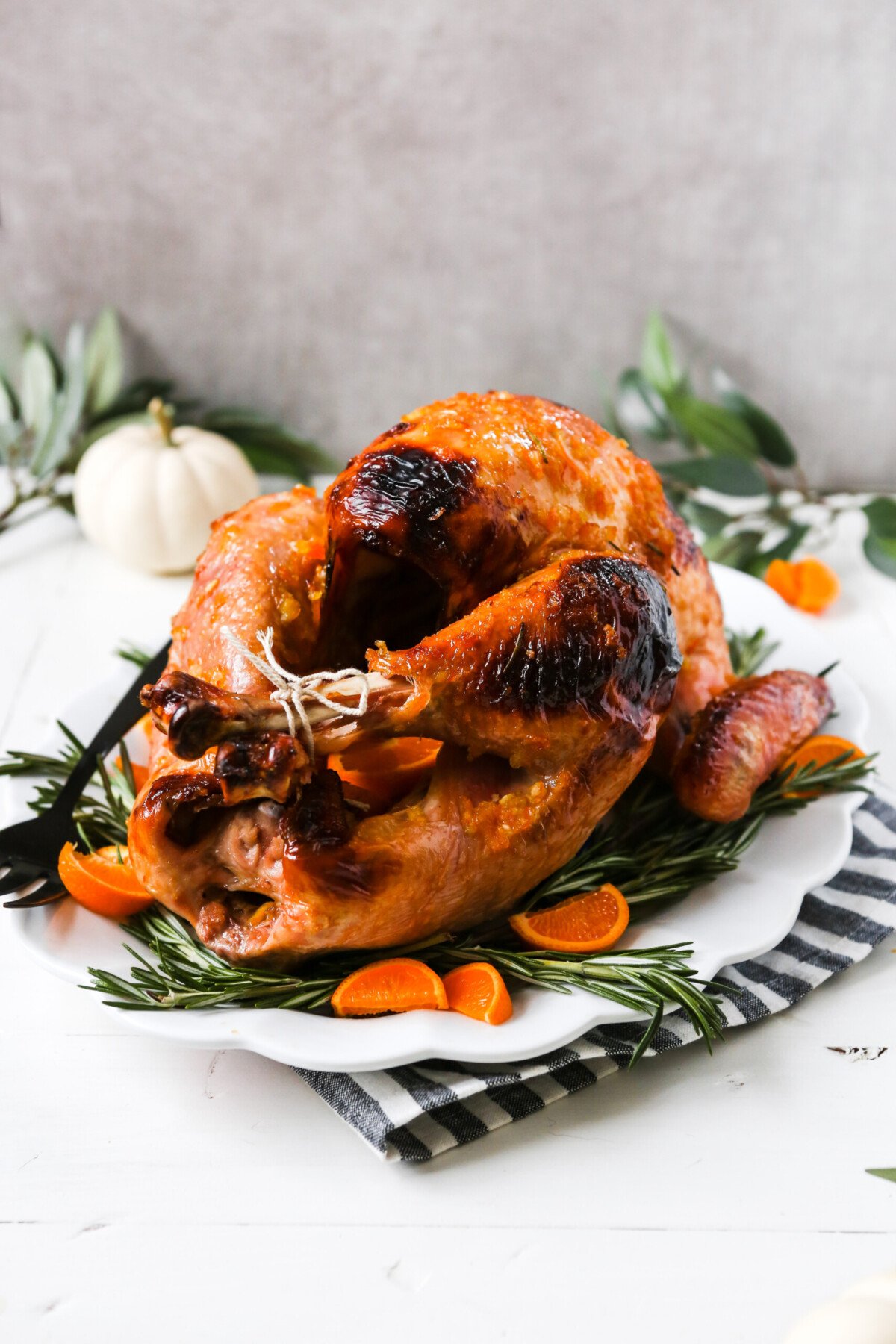
Step 2: Start the Turkey Breast Side Down
For the first 30 minutes, cook your turkey breast side down. Why roast upside down? Well, it protects the breast meat from overcooking and drying out. It’s an easy solution to a classic Thanksgiving problem.
After 30 minutes, flip the bird breast side up carefully using wads of paper towel. Roast for another 65 to 75 minutes. My rule of thumb is about 13 minutes per pound for an unstuffed turkey.
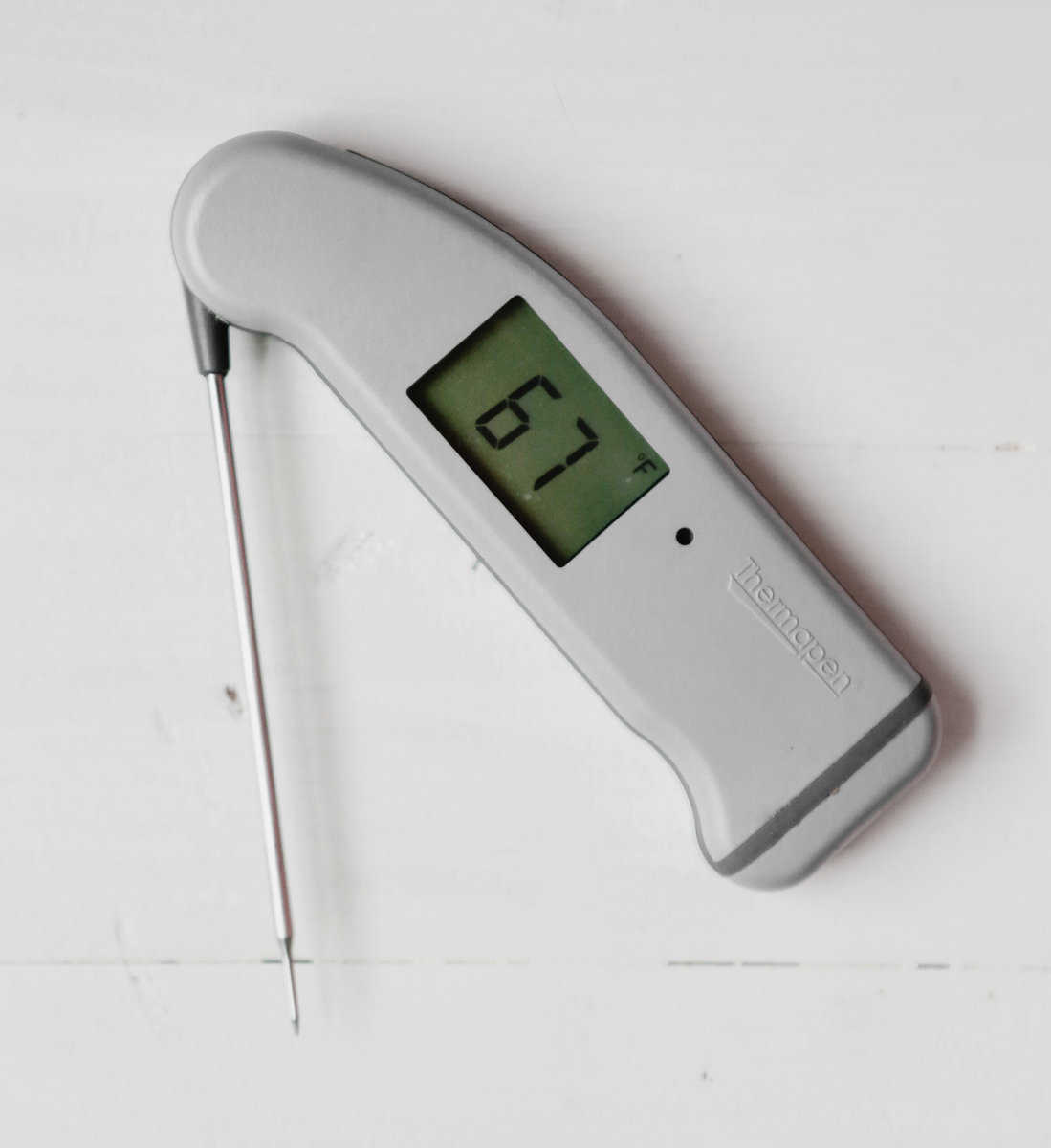
Step 3: Make the Orange Glaze
While the turkey is roasting, make the glaze. Combine the orange marmalade, orange juice, Dijon mustard, garlic, and rosemary sprigs in a saucepan over medium heat. Bring to a boil for 1 minute, then let cool and discard rosemary sprigs.
After flipping the turkey breast-side up, brush with the glaze every 20 minutes.
Step 4: Check the Temperature of Your Turkey
Arguably the most important step in cooking the perfect Thanksgiving turkey is checking the temperature. In general, when it comes to cooking any kind of meat, temperature is essential.
Yes, checking the temperature of your meat is immensely important for food safety reasons. But beyond that, checking the temperature of your meat while cooking helps to ensure that it’s cooked, but not over cooked. They key temperature to roast your turkey is 160ºF for the breast and 170ºF for the thigh, not touching the bone.
If you’re in the market for a new kitchen thermometer, opt for the Thermapen from ThermoWorks. They are extremely accurate and read a temperature within 1 to 2 seconds. I’ve worked in countless test kitchens, and this is the one kitchen tool that is universally used by them all.
Step 5: Rest the Turkey
After you have done all of the preparation and waited hours to roast the turkey, it’s essential to allow the bird to rest. Resting lets the juices within the bird even out so that the result is an evenly juicy and roasted piece of meat.
Be sure to allow the turkey to rest at least 30 minutes to 45 minutes, for best results before slicing and serving.
If you are unsure the best way to slice a turkey, I’ve got the perfect guide for you to use!
What Are the Benefits of Brining a Turkey?
There are many benefits to brining meat, but in this instance we’re using a brine to tenderize, moisturize and flavor our meat. Additionally, it also cuts down on the cooking time, which makes timing and cooking the Thanksgiving meal easier.
The only precaution is to make sure the word “pre-brined” is not printed on the packaging. Butterball turkeys, for instance, come pre-brined and would be too salty if they were brined a second time.
Other ingredients you could add to a brine include:
- Crushed garlic cloves
- Sugar
- Molasses
- Fresh herbs such as rosemary, thyme and sage
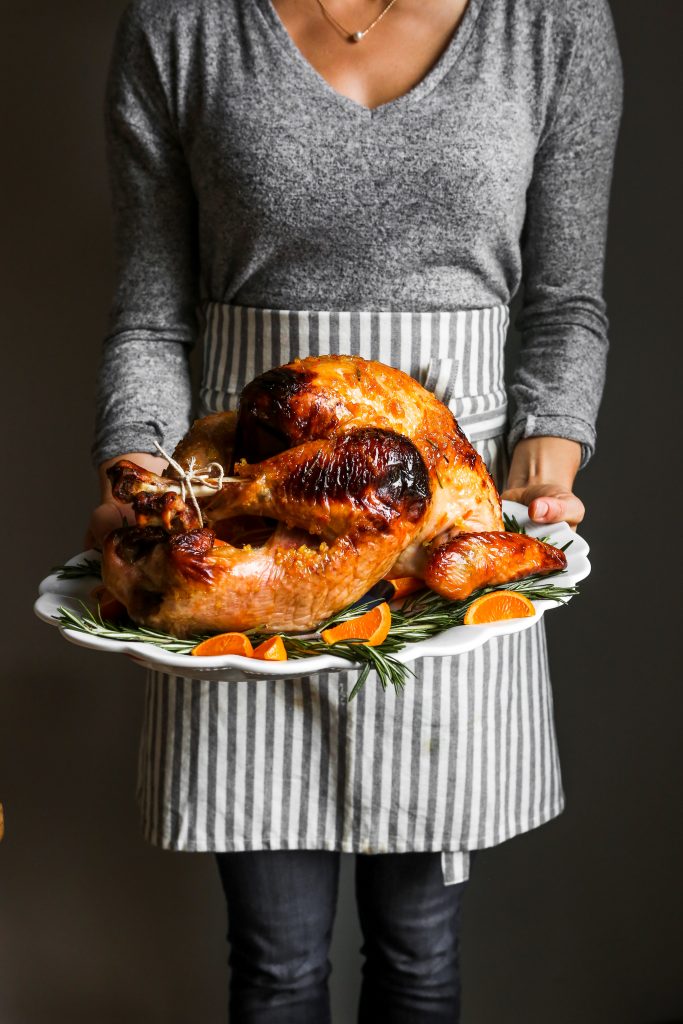
Storage and Freezing
Refrigerating
Leftovers are one of the joys of Thanksgiving. You can store leftover turkey meat in an airtight container in the fridge for up to four days. I like to reheat the meat in the oven or microwave with a little bit of chicken broth to make sure it stays juicy.
Freezing
The best way to freeze leftover turkey is to take all of the meat off of the bones and transfer to a resealable freezer bag. Then press all of the air out of the bag, seal and place in once more resealable freezer bag. Why double bag? It will help protect your flavorful meat from getting freezer burn.
Alternatively, if you don’t want to freeze all of your leftovers in one large portion, divide them into 1–2 serving size portions and freeze in smaller bags (remember to double up on bags to avoid freezer burn). This way you can thaw and enjoy your leftovers over the course of a few months. Thaw frozen cooked turkey in refrigerator overnight.
Test Kitchen Tips
- Thaw days in advance. It can take days to thaw a turkey in the refrigerator—so get a head start on this! Account for 1 day of thawing for every 4 pounds. If you forget to thaw the turkey ahead of time, you can speed the process up by thawing in cold water.
- Brine up to 2 days in advance. While the turkey shouldn’t sit in the brine for more 12 hours, it can be brined ahead of time. Simple remove the turkey from the brine, pat dry and place on a wire rack set inside a sheet pan. Transfer the sheetpan and turkey to a refrigerator and store until ready to roast.
- Basting is optional. Basting is a well-known cooking method that helps to keep the turkey nice and moist during roasting. To do this, use a baster to suck up any pooled drippings and pour them over the top of the turkey. Because we brined the turkey, this step is optional—you’ll get a moist turkey regardless. Also, do not baste once the glaze is being brushed on.
- Covering the bird when roasting. Do not cover the turkey while roasting. You want to allow the turkey skin to brown. Once the glaze is added, if the skin looks to be getting too dark, you can tent it with foil.
Using Leftover Turkey
Leftover cooked turkey can be used in all kinds of delicious recipes. It’s sometimes easier to think of it as cooked chicken—try adding it to these great dinner recipes.
- Weeknight pho
- Slow cooker turkey wild rice soup
- Breakfast burritos
- Turkey and fig paninis or add some to these gruyère toasts
- Spicy chipotle tacos
- Butternut Squash risotto
- Pesto pasta
- Butternut squash carbonara
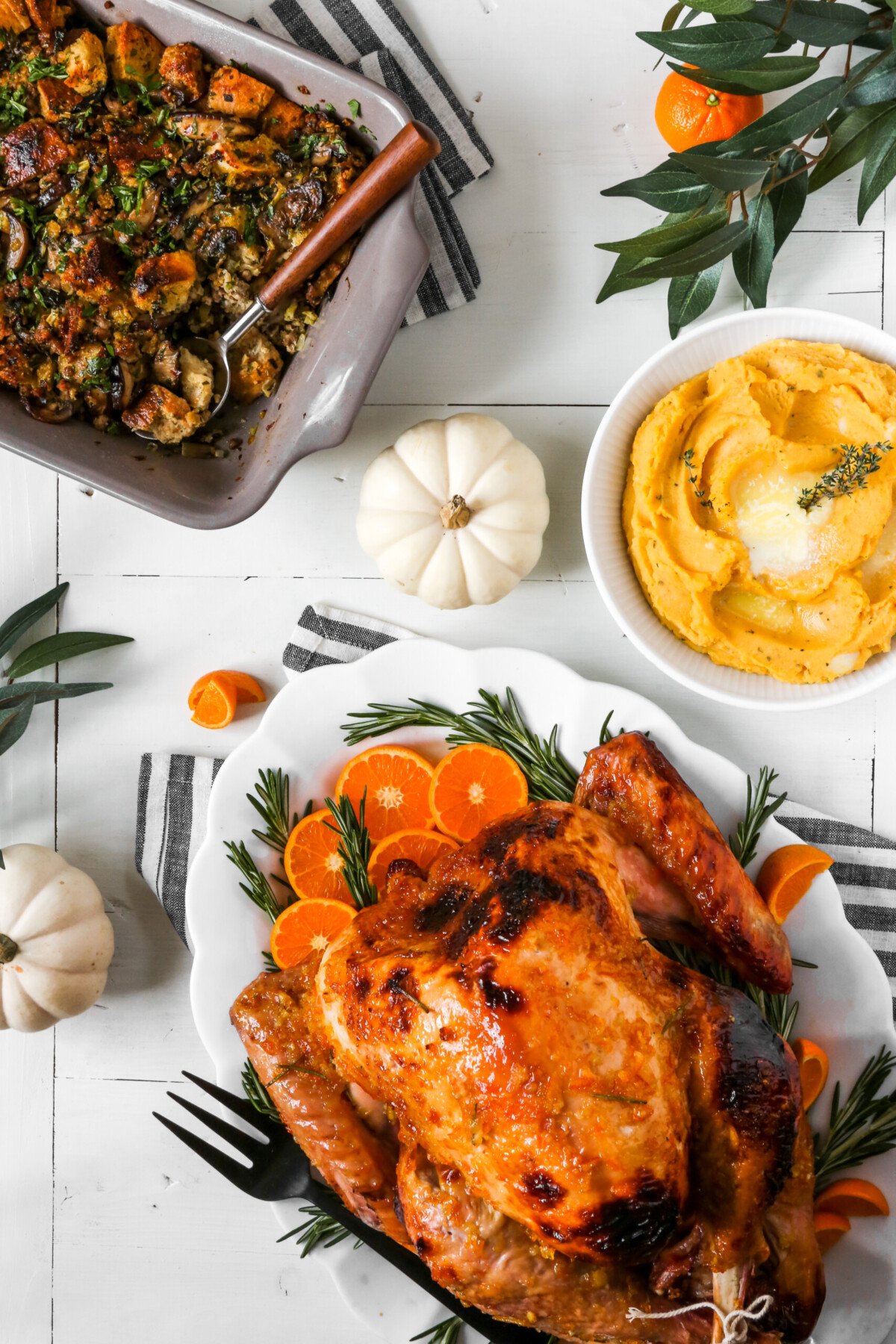
FAQs
Uncovered so it can get golden brown and the glaze (if using) can caramelize. Only cover the turkey with foil if it is getting too brown during roasting.
No! The turkey is fine out of the package.
If you are using a glaze, it’s important brush the bird every 20 minutes or so to help the glaze caramelize. Otherwise, you don’t need to baste the turkey with drippings.
Roasted Turkey with Orange Glaze
Description
Ingredients
For the Turkey
- 2 gallons cold water
- 1 cup salt
- 2 (12-ounce) cans frozen orange juice concentrate, thawed
- 2 tablespoon black peppercorns
- 2 dried bay leaves
- 1 (12-pound) turkey, trimmed, neck, giblets, and tailpiece removed and discarded or reserved for gravy
- 1 –1½ cups low-sodium chicken broth, bone broth, or white wine
For the Glaze
- ¾ cup orange marmalade
- ⅓ cup fresh orange juice
- 1 tablespoon Dijon mustard
- 1 tablespoon minced fresh garlic
- 2 sprigs rosemary
Instructions
For the Turkey
- In a large container whisk together water, salt, orange juice concentrate, peppercorns, and bay leaves. Submerge turkey in brine, cover, and refrigerate for 6–12 hours.
- Transfer turkey, breast side up, to a wire rack set inside a rimmed baking sheet. Pat turkey dry, inside and out, with paper towels then refrigerate, uncovered, for 30 minutes.
- Adjust oven rack to lowest position and heat oven to 400°F. Coat a V-rack with nonstick spray then set inside a large roasting pan. Tuck tips of drumsticks into skin at tail end to secure (or tie together with kitchen twine), and tuck wings behind back. Transfer turkey, breast side down, to prepared V-rack. Pour broth into bottom or roasting pan and roast turkey 30 minutes.
For the Glaze
- Meanwhile, combine marmalade, orange juice, Dijon, garlic, and rosemary sprigs in a saucepan over medium heat for the glaze. Bring glaze to a boil, stirring occasionally, and cook 1 minute, then remove from heat and let cool; discard rosemary sprigs.
- Remove pan from oven. Using 2 wads of paper towels, rotate turkey breast side up then brush turkey with glaze. If broth has evaporated from bottom of pan, pour in an additional ½ cup.
- Return pan to oven and continue roasting turkey until an instant-read thermometer inserted into the breast, but not touching the bone, registers 160°F and inserted into the thighs, but not touching bone, register 175°, 65–75 minutes more, brushing turkey with remaining glaze every 20 minutes until all glaze is used.
- (To properly temp a turkey, insert the thermometer tip deep into the meat in several places and pull it back out slowly. Watch the numbers change on the screen. If you see a number that is below 160°F in the breast, return the turkey to the oven for more cooking.)
- Remove pan from oven and gently transfer turkey to a carving board and let rest, uncovered, for 30 minutes. Slice and serve with favorite gravy.
Equipment
Video
Notes
- Brine on the turkey on Tuesday
- Remove from brine on Wednesday and chill overnight
- Roast turkey on Thursday and enjoy!
Nutrition
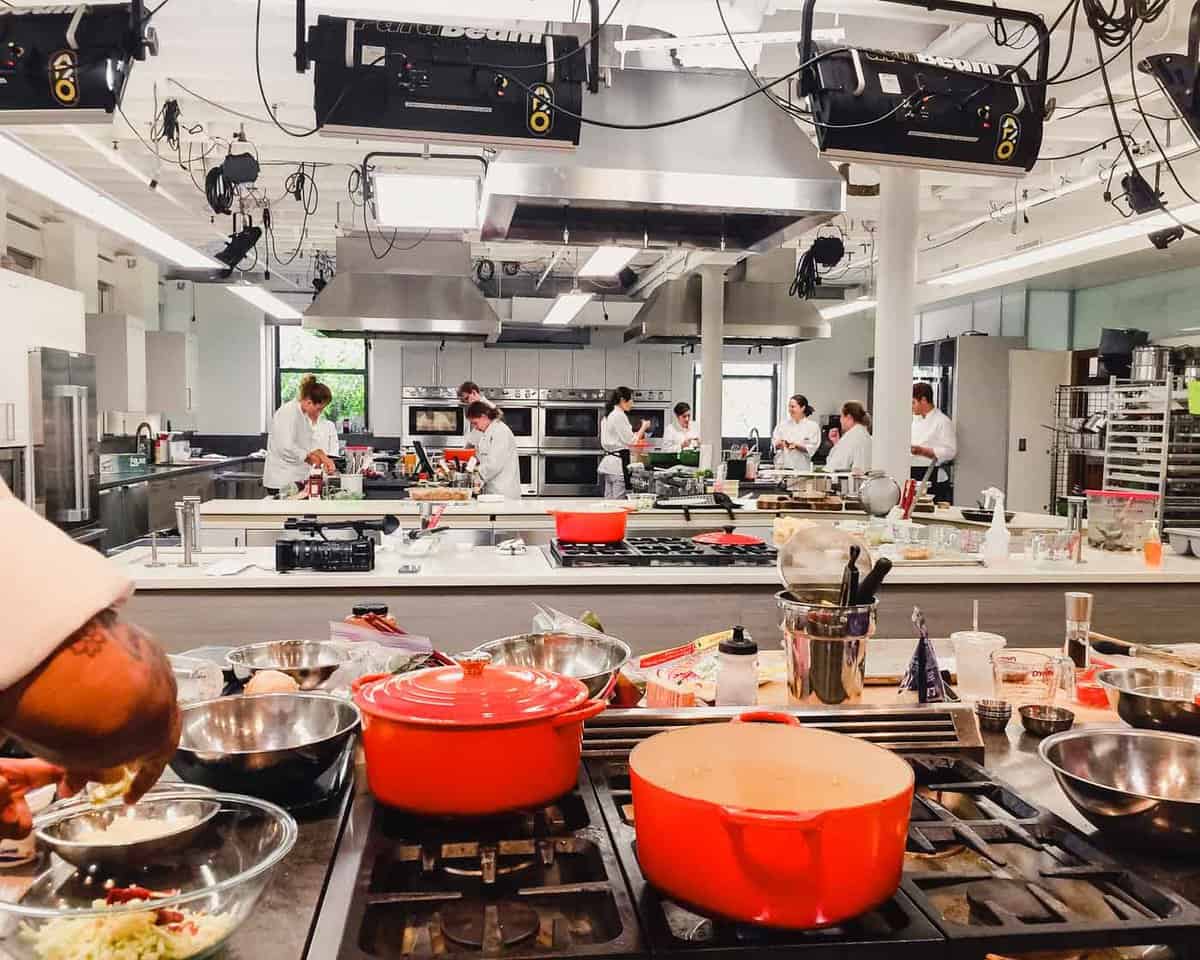
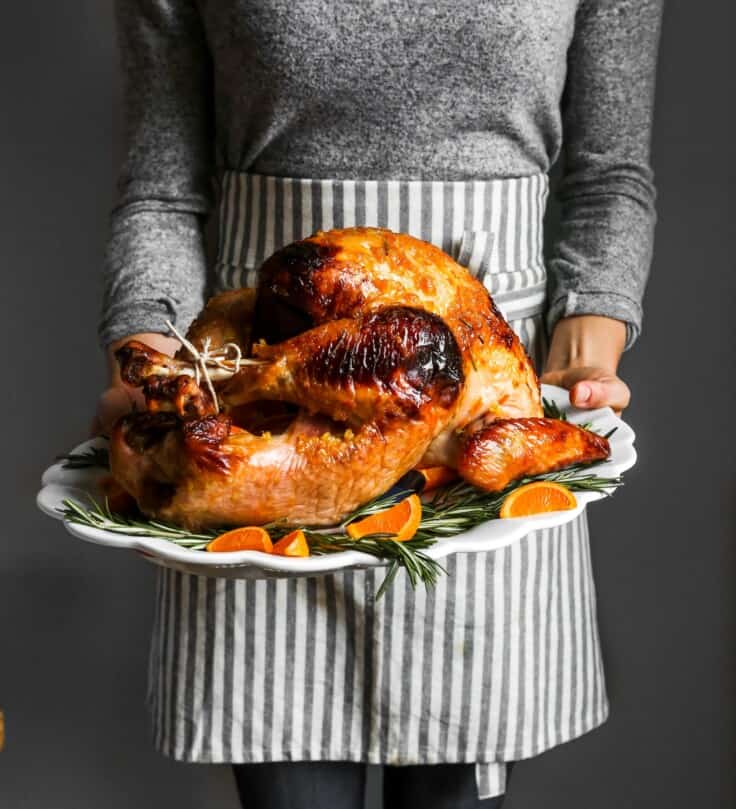
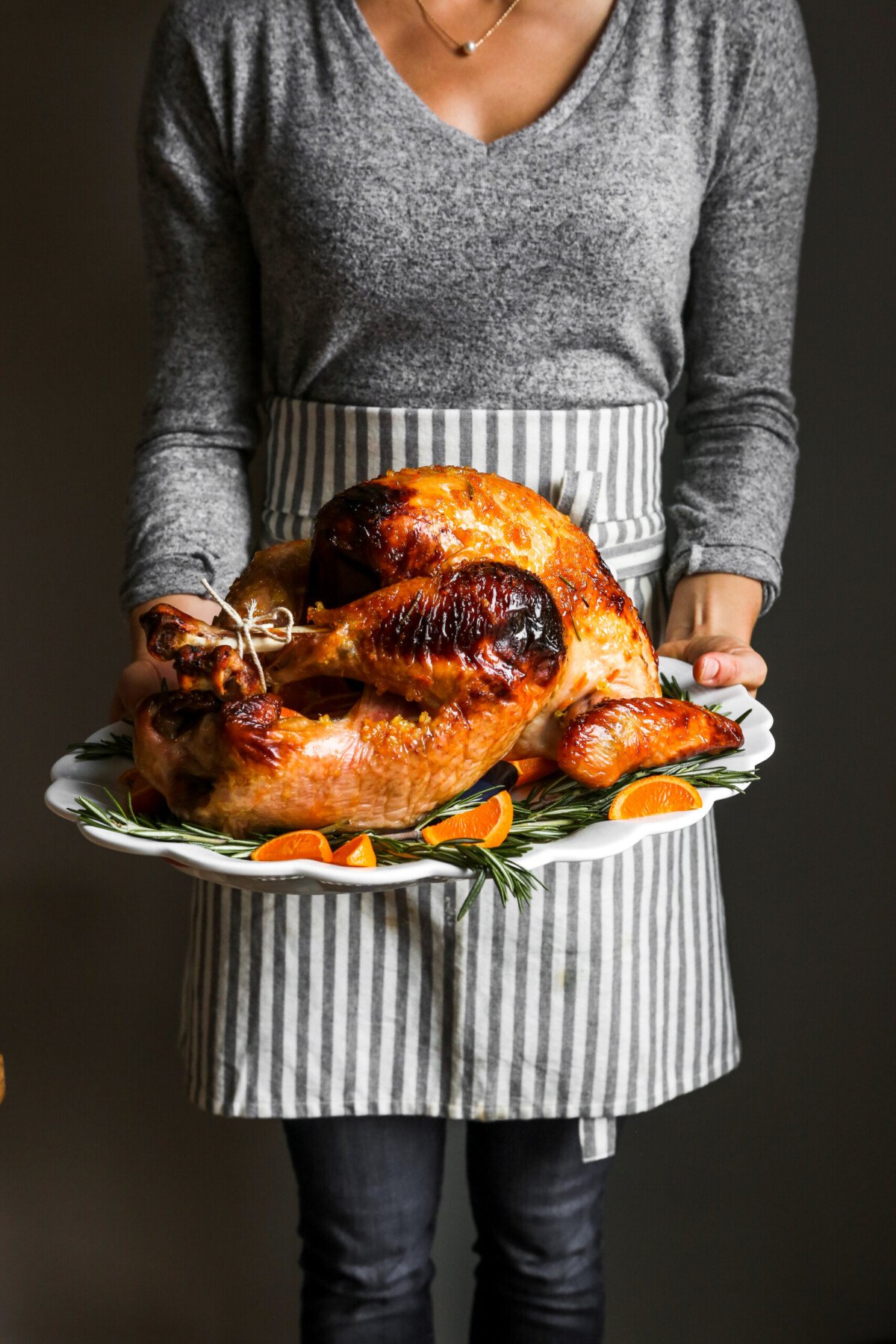
Do you use a frozen bird? Just wondering because aren’t most frozen turkeys already brined? I am just afraid my turkey will be way too salty.
Hi Emilia! GREAT question, You can find frozen turkeys that have no added salt, however they can be hard to find. When looking for a frozen turkey with no added salt look for those labeled as “all-natural” or even “organic” since those often do not have salt (brine) injected in them.
Your best bet (and to save you time so you don’t have to search for a frozen turkey with no added salt) would be to order a fresh turkey from your local grocery store or butcher. That’s how I like to do it!
I hope that helps!
Can I brine a pre-brined turkey by using less salt?
Hi Sebastian, great question! I would skip the brining process altogether if you have a pre-brined turkey. This will help maintain a desirable texture, if you brined the turkey again, even with less salt, it would likely become mealy. Just load up on that glaze. 🙂 I hope that helps!
I made this for Christmas dinner for our small family gathering – turned out perfect! Was so easy and delicious! I’m already looking forward to leftovers.
Hi Betsy! Ahh yay! I am so happy to hear that, thanks for including one of my recipes in your holiday menu!
Hi! I made this for Christmas last year and it was incredible, I plan to make this for our Thanksgiving this year, but am using an 18 lb bird. What would the adjustments be for the larger size (if any?).
Thanks!!
Hi, thank you for the recipe. I want to do it for Thanksgiving, should I use orange marmalade for the glaze?
Yes, orange marmalade is correct! Let me know how it goes!
Can I use just a turkey breast with this recipe? We don’t eat much turkey, but the kids are insistent we have it for Thanksgiving. They only like white meat, so a whole turkey doesn’t seem practical for us.
Yes!! I actually have a great recipe for roast turkey breast that uses a similar brine. Here’s the recipe. The result is an ultra-moist turkey breast (this is my favorite for Thanksgiving, esp if you don’t want a whole lot of leftovers!!)
https://zestfulkitchen.com/oven-roasted-turkey-breast-recipe/